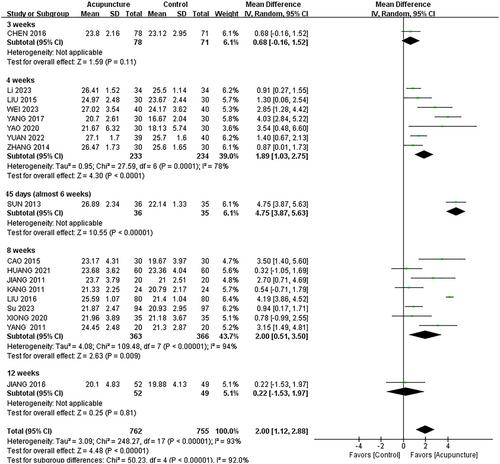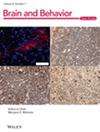Effect of Acupuncture on Cognitive Function in Patients With Post-Stroke Cognitive Impairment: A Systematic Review and Meta-Analysis
Abstract
Aims and objective
To investigate the impact of acupuncture on post-stroke cognitive impairment (PSCI).
Background
PSCI is a major barrier to stroke patients’ rehabilitation, and acupuncture is one of the treatments. However, the benefit of acupuncture on PSCI is unclear.
Design
A meta-analysis and systematic review of randomized controlled trials (RCTs).
Methods
Up to February 1, 2024, databases in PubMed, MEDLINE, Scopus, Embase, Web of Science, Cochrane Library, China National Knowledge Infrastructure, VIP, and Wanfang Data were searched. The risk of bias was investigated using the Cochrane Handbook for systematic reviews of treatments. Random-effect and fix-effect models were used to report the effects.
Results
There were 29 randomized clinical trials with 2477 participants included. The findings demonstrated that the Mini-Mental State Examination (MMSE) and the Montreal Cognitive Assessment (MoCA) scores were higher in the acupuncture group than medicine group (mean difference [MD] = 1.74, 95% confidence interval (CI) CI [1.26, 2.23], I2 = 59%, p < 0.01). Compared to medicine group, the Loewenstein Occupational Therapy Cognitive Assessment (LOTCA) score exhibited a significant decrease and demonstrated improvement in the acupuncture group. Statistically significant outcomes were observed in the Barthel Index scores and P300 event-related potential (ERP). According to subgroup analysis, acupuncture was superior to conventional therapy for improving cognitive function in PSCI patients at 4 weeks after treatment.
Conclusion
Acupuncture therapy has shown promise in ameliorating cognitive deficits and enhancing daily functional abilities in individuals diagnosed with PSCI. But future research should focus on the duration and implement large sample, high-quality RCTs.
Relevance to clinical practice
Clinical workers in practical clinical work can select appropriate acupoints according to the actual conditions of patients, as well as confirm the treatment course of PSCI patients, while paying attention to observing and evaluating the therapeutic efficacy of acupuncture, to improve the health outcomes of patients in a patient-centered way.


 求助内容:
求助内容: 应助结果提醒方式:
应助结果提醒方式:


